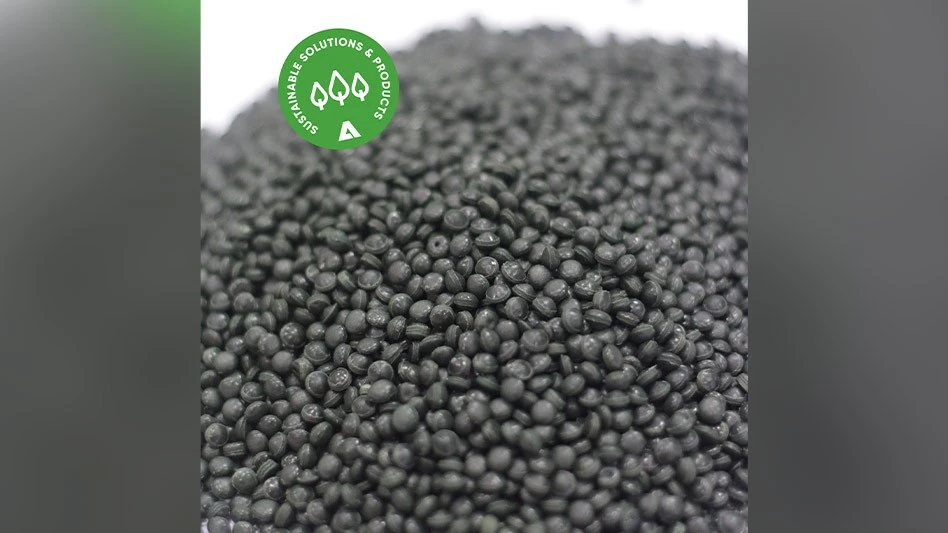
Photo courtesy of RecyOuest
RecyOuest, Argentan, France, says it has successfully started up the world’s first recycling line for agricultural postuse plastic nets at its Argentan mill. The company adds that the new line features a unique mechanical dry-cleaning system that avoids the use of water and chemicals and was delivered, installed and commissioned by the Graz, Belgium-based international technology group Andritz in August.
According to RecyOuest, the Andritz recycling line can process up to 8,000 tons of scrap and produce recycling fibers for nonwoven applications and also for pellets made of material from agricultural single-use plastic nets and twines. The pellets are then returned to the plastics industry by mixing both recycled and virgin raw materials, which the company says reduces the amount of virgin plastic used.
RecyOuest, which specializes in the recycling of contaminated filamentary thermoplastics such as round bale nets and twines, says the line was inspired by techniques used in textile scrap recycling.
“We are very grateful for the excellent cooperation with the R&D team from Andritz, who fully supported us in their technical center,” RecyOuest founder and President Marcela Moisson says. “Thanks to Andritz Laroche’s expertise in the textile industry, we succeeded in finding the exact process required for recycling agricultural waste, which was a huge challenge.”
Moisson adds, “This unique dry-cleaning process allows us to minimize our environmental impact drastically in the long run, while giving a second life to agricultural waste for which, until now, there was no recycling solution, neither in France, the leading country in the agricultural sector, nor worldwide.”
Latest from Recycling Today
- Aqua Metals secures $1.5M loan, reports operational strides
- AF&PA urges veto of NY bill
- Aluminum Association includes recycling among 2025 policy priorities
- AISI applauds waterways spending bill
- Lux Research questions hydrogen’s transportation role
- Sonoco selling thermoformed, flexible packaging business to Toppan for $1.8B
- ReMA offers Superfund informational reports
- Hyster-Yale commits to US production





